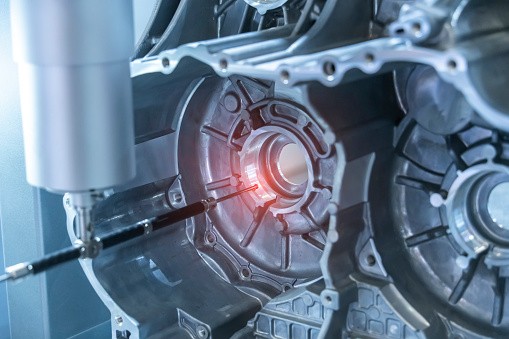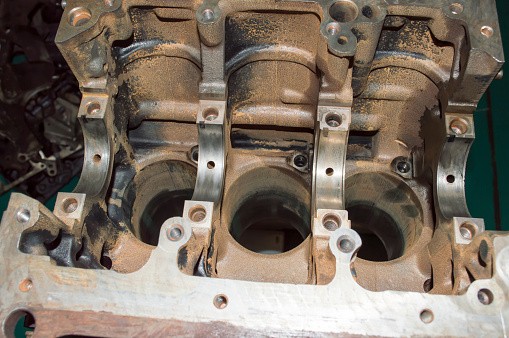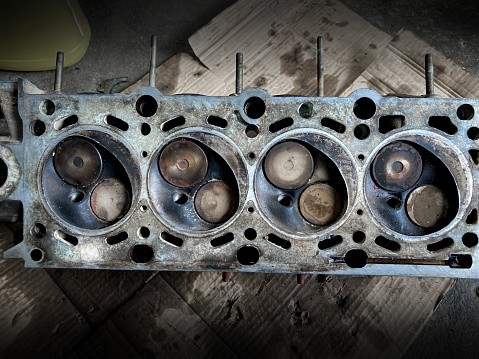A misfiring cylinder in a car’s engine can cause a number of problems and is often due to a problem with the spark plug, ignition coil, or another engine component. In this blog post, we’ll walk you through some of the most common causes of cylinder misfires and how to fix them.
What Is Cylinder Misfire?
Before we get into how to fix a misfiring cylinder, it’s important to understand exactly what that means. A misfiring cylinder is one that is not firing on all cylinders. This can be caused by a number of different things, but most often it is due to a problem with the spark plug, ignition coil, or another engine component.
How To Fix Cylinder Misfire
Here are some ways to fix cylinder misfires.
Check The Spark Plug
The first thing you’ll want to do if you think you have a misfiring cylinder is to check the spark plug. If the spark plug is fouled or damaged, it may be causing the misfire. To clean or replace the spark plug, consult your car’s owner’s manual.
Check The Ignition Coil
If the spark plug looks fine, the next thing to check is the ignition coil. The ignition coil supplies voltage to the spark plug and if it has failed, it will need to be replaced. Again, consult your car’s owner’s manual for instructions on how to do this.
Check For Vacuum Leaks
Another common cause of cylinder misfires is a vacuum leak. A vacuum leak can cause an imbalance in the air/fuel mixture in the cylinders and cause a misfire. To check for vacuum leaks, use a vacuum gauge and attach it to one of the engine’s vacuum hoses. If there is a leak, you’ll see a drop in vacuum pressure. Consult your car’s owner’s manual for instructions on how to fix any leaks that you find.
Check For Fuel Injector Problems
Fuel injectors can also cause cylinder misfire if they are clogged or not working properly. To clean or replace fuel injectors, again consult your car’s owner’s manual as instructions will vary depending on your make and model of car.
Check Other Engine Components
Other potential causes of cylinder misfires include worn-out piston rings, damaged valves, and low compression in the cylinders. If you suspect any of these issues, it’s best to take your car to a mechanic as they will need to be diagnosed and repaired by someone with experience.
Common Causes Of Cylinder Misfires And How To Prevent Them
In order to prevent cylinder misfires, it is important to be aware of the common causes. Some of the most common causes of cylinder misfires are:
Carbon Buildup On The Spark Plugs Or In The Ignition System
This can cause a misfire because it can interrupt the spark that is necessary for ignition.
Defective Coils Or Spark Plugs
A bad coil or spark plug can prevent the engine from starting or running correctly.
Clogged Or Dirty Fuel Injectors
This can cause a misfire by preventing the proper amount of fuel from being delivered to the engine.
Low Fuel Pressure
If the fuel pressure is too low, it can affect how well the engine runs and may lead to a misfire.
Electrical Problems Such As Faulty Wiring Or Bad Grounds
These problems can cause a misfire by disrupting the electrical current that is necessary for the engine to run properly.
What Are The Consequences Of Not Fixing A Cylinder Misfire?
If a cylinder misfire is not fixed, there can be a number of consequences. One consequence can be that the air-fuel mixture in the cylinders may not be correct, which can lead to decreased fuel efficiency and increased emissions. Another consequence can be that the engine may not run as smoothly, leading to a decrease in performance and an increase in noise. Additionally, if a cylinder misfire is left unaddressed, it may eventually cause permanent damage to the engine. This could lead to costly repairs or even the need for a replacement engine. Ultimately, it is best to address cylinder misfires as soon as possible in order to avoid any long-term damage.
Conclusion:
A cylinder misfire can be caused by a number of different things, but most often it is due to a problem with the spark plug, ignition coil, or another engine component. In this blog post, we’ve walked you through some of the most common causes of cylinder misfires and how to fix them. We hope you found this post helpful!
You May Also Like The Following:


